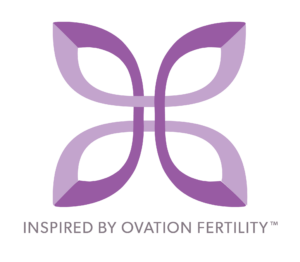Diagnosing and treating female infertility
About 10% of the population struggles with the disease of infertility – a complex condition in which the reproductive system doesn’t function normally. In about one-third of cases, female infertility is the primary reason that a couple can’t get pregnant on their own, and it plays a role in about a third of other cases when both the male and female partners have fertility issues.
The good news: Our Tennessee fertility center offers proven, advanced treatment options that have helped thousands of women and couples overcome female infertility to have children. The first step is determining exactly what factors are preventing you from getting pregnant, so that the right treatment can be prescribed at the right time.
Female infertility causes and risk factors
Reproductive endocrinologists would consider a woman or couple “infertile” if the woman is unable to get pregnant or stay pregnant after a year of trying. For women older than 35, that timeframe shortens to six months. And for women in their 40s, we strongly recommend seeking testing at our Tennessee fertility center as soon as you decide you want a baby.
Because a woman is born with all the eggs she will ever have in her lifetime, her egg supply declines throughout the years and cannot be replenished. While diminished ovarian reserve is a common cause, many other factors may also be at play in female infertility, including ovulation disorders, hormone problems, disease, or structural problems with the fallopian tubes or uterus. In some cases, no cause is discovered, and the reasons behind a couple’s infertility remain unexplained.
Multiple factors may increase your risk of female infertility.
- Advancing age, as egg quantity and quality typically begin to decline in a woman’s 30s
- Ovulatory dysfunction and hormonal imbalances
- Endometriosis, in which uterine tissue grows outside the uterus
- Sexually transmitted diseases, which can cause permanent scarring and other complications
- Prior pelvic surgeries
- Birth defects of the reproductive system
- Obesity or very low body fat, both of which can affect ovulation
- Chronic disease, such as lupus or diabetes
- Environmental or lifestyle factors, such as smoking, excessive alcohol consumption or exposure to toxins
- Exposure to chemotherapy
Get answers
A comprehensive infertility evaluation for both partners is the only way to diagnose both male and female infertility so that your fertility specialist can create an effective treatment plan targeted to your specific reproductive issues. Our Tennessee fertility center recommends fertility testing for all women who are younger than 35 and have been trying to conceive for 12 months, or six months for older women. Testing is also recommended for women who have had repeated miscarriages.
To learn more about female infertility or schedule an appointment with one of our board certified fertility specialists, contact our Tennessee fertility center.






